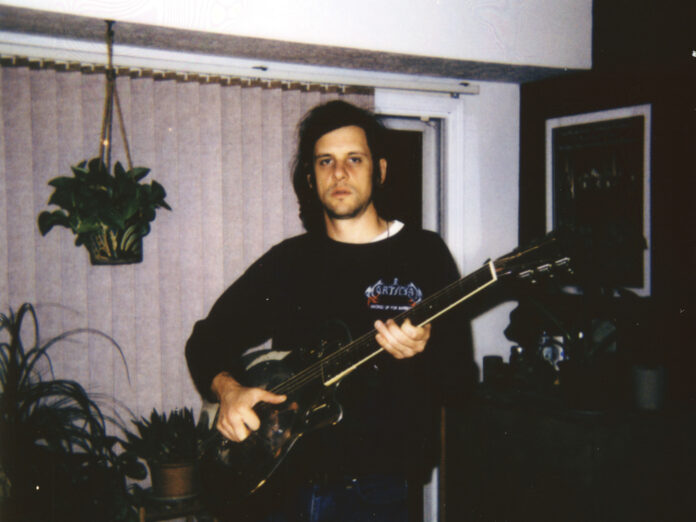Sprawl, swagger, poetry and epics
Sprawl, swagger, poetry and epics
It hardly needs saying that we live in an age of ever-shortening attention spans – especially when it comes to music. How dire has the situation got? Well, take the recent New York Times profile of Michael Stipe, wherein The 1975’s Matty Healy tells the ex-REM frontman of an encounter he’d had with a 12-year-old.
“So I said, ‘Well, what songs do you like?’ And he said to me: ‘What full songs?’ That was his response! The decimal point has moved! I didn’t realise that the denomination was now smaller than the song.”
TALKING HEADS ARE ON THE COVER OF THE NEW UNCUT – HAVE A COPY SENT STRAIGHT TO YOUR HOME
In the face of these rapidly diminishing returns, it’s refreshing to sink into a record like Ryan Davis & The Roadhouse Band’s Dancing On The Edge, a seven-song double LP with a lyric sheet as dense as its striking cover art. With several tunes that creep towards the 10-minute mark, there’s a sprawl and swagger here that not many current songwriters would dare to attempt. And yet Davis isn’t a rambler, really; his songwriting isn’t the stream-of-consciousness blather of a Dylan wannabe or a navel-gazing plumber of the quotidian depths. What’s most impressive about Dancing On The Edge is how he keeps you hanging on every word, savouring his weird wisdom, oddball poetry and wry sense of humour. When one of these humble, vastly entertaining epics comes to a close, you might wish it had gone on even longer.
This is his first album under his own name, but Davis is far from a new kid on the block. The Louisville-based musician released several stellar records under the State Champion moniker; he has played with Tropical Trash and Equipment Pointed Ankh, both well-nigh unclassifiable collectives; he steers the ship at the eclectic Sophomore Lounge label, which has released terrific LPs by Arbor Labor Union, Ned Collette and C Joynes; and in 2010, he co-founded the long-running music festival Cropped Out, bringing a wide array of underground talent to Kentucky over the years. In other words, Davis is a lifer, with a deep well of musical experience and influences to draw upon.
Dancing On The Edge comes five years after State Champion’s Send Flowers, and Davis says that for a while there, he believed he might be done with the sometimes-taxing process of straightforward songwriting, instead focusing on experimental electronic tracks, freeform improvs and visual art. “For the first time in my adult life, I wasn’t thinking about touring or promoting or even any sense of ‘community’ whatsoever,” he reveals. “I just wanted to make new things. Almost obsessively. And the more I sharpened those instinctual tools, the more I slowly started circling back toward the unexpected desire to return to ‘song’ form with a clear and conditioned mind. It certainly didn’t come easy. It was painful, actually.”
That pain has paid off with Davis’ best work so far. And his songwriting sabbatical seems to have provided him with an overarching theme: stasis and the desire to move forward but not knowing how to do so. It’s a portrait of the artist in his late thirties looking wearily down the barrel of middle age. “I’m doing 25-to-life just waiting on a friend to get back from a piss,” Davis sings at the album’s outset. Elsewhere: “I lie awake and I wait quietly for a tax return/To come howling down from the side of a mountain somewhere.” Or, most hilariously, he complains of the purgatory of drinking in a bar where the jukebox “only plays ‘Sultans Of Swing’.”
At first blush, these concerns may not seem like the stuff of a gripping LP, much less a double LP. But the sound that Davis and his collaborators have crafted here gives Dancing On The Edge a buoyancy that carries the listener along beautifully. For example, the album’s 10-minute centrepiece, “Flashes Of Orange”, is a remarkably infectious ride – especially given that it appears to be sung by someone who can’t get out of bed. The alt.country signifiers are here: chiming guitar and piano, pedal steel swells, full-blooded harmonies (provided by fellow Louisvillian Joan Shelley). But the song keeps shifting in unexpected ways, careening into unusual synth breakdowns, left-turning into minor keys, uncovering an almost danceable groove at times. Throughout, Davis comes across like Jay Farrar possessed by the spirit of David Berman. “I’ve seen the sunset, babe, through each and every shade of beer,” our despairing narrator exclaims. “And I can tell you each and every kind of hanging tree that’s native here.” It’s a song that the late, great Berman would’ve been proud to call his own.
Or Kurt Wagner. Or Bill Callahan. Or, hell, even John Prine. Dancing On The Edge is singular and strong enough to put Davis in league with some of the very best American songwriters of the past and present. He’s someone with the originality, wit and ambition to cut through the murk. Someone worth paying attention to.



